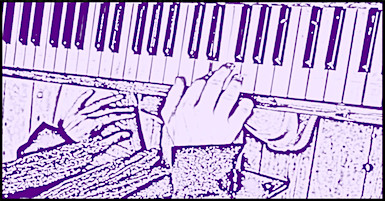If you find yourself looking for new song ideas and inspiration, here’s a tip that works! Watch television. I know it might sound crazy but many TV scenes are built around common emotional situations the audience can relate to. That’s just what you want for your song.
CHOOSE A TV SHOW
Just about any drama series will provide you with plenty of good scenes. Look for emotional interaction between two characters. Watch the scene and note the dialogue – you might even write down a few lines to get your song started.
Comedy series are not as easy to use as drama but they will work. If you choose a sitcom, check out the last 5 to 10 minutes of the show when any conflicts or problems are wrapped up and there’s often a heartfelt moment between characters.
Soaps operas, yes, good old-fashioned afternoon soaps, are a good source if you can manage to watch. (There aren’t many left.) They’re slow moving and nothing much happens but that’s because everyone is busy emoting all over the place. There’s enough emotional confrontation, regret, tearful forgiveness, and joyful reunions to fill a couple hundred songs!
Action series are fun to watch but chase scenes and shootouts won’t give you much to work with. Like comedy series, the emotion is usually in the last few scenes.
 Q: What makes a great song great?
Q: What makes a great song great?
 Let’s say you’ve just spent the afternoon writing a song and you feel you’ve got a good start on a first draft. The concept is strong, the structure feels right. Of course the lyric still needs work but you’re planning to go back and rewrite it.
Let’s say you’ve just spent the afternoon writing a song and you feel you’ve got a good start on a first draft. The concept is strong, the structure feels right. Of course the lyric still needs work but you’re planning to go back and rewrite it.

